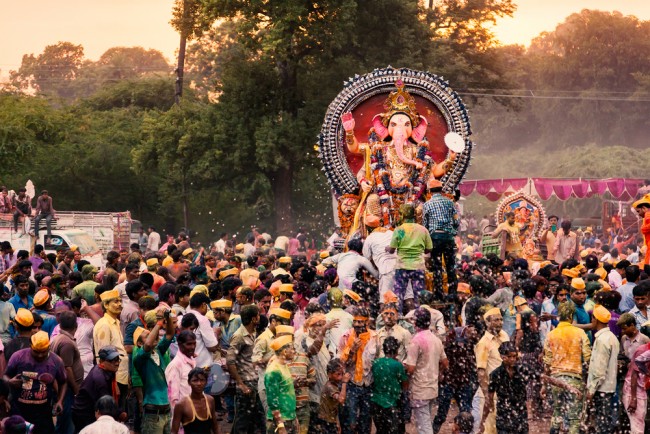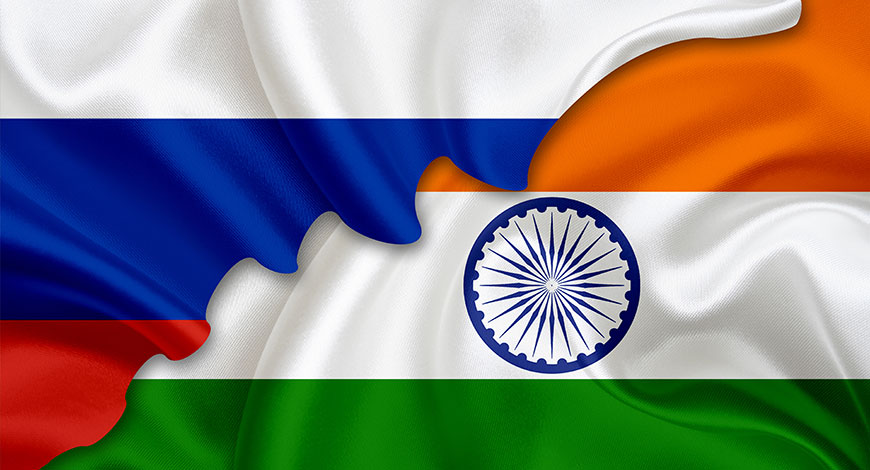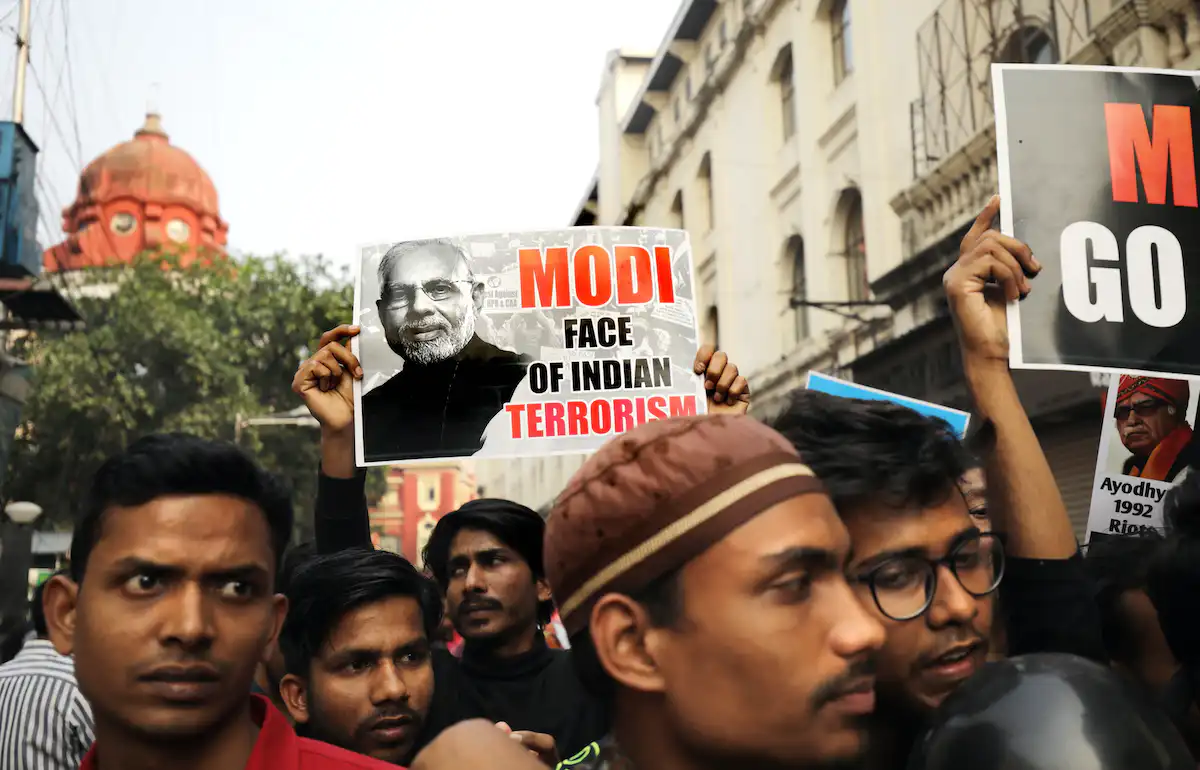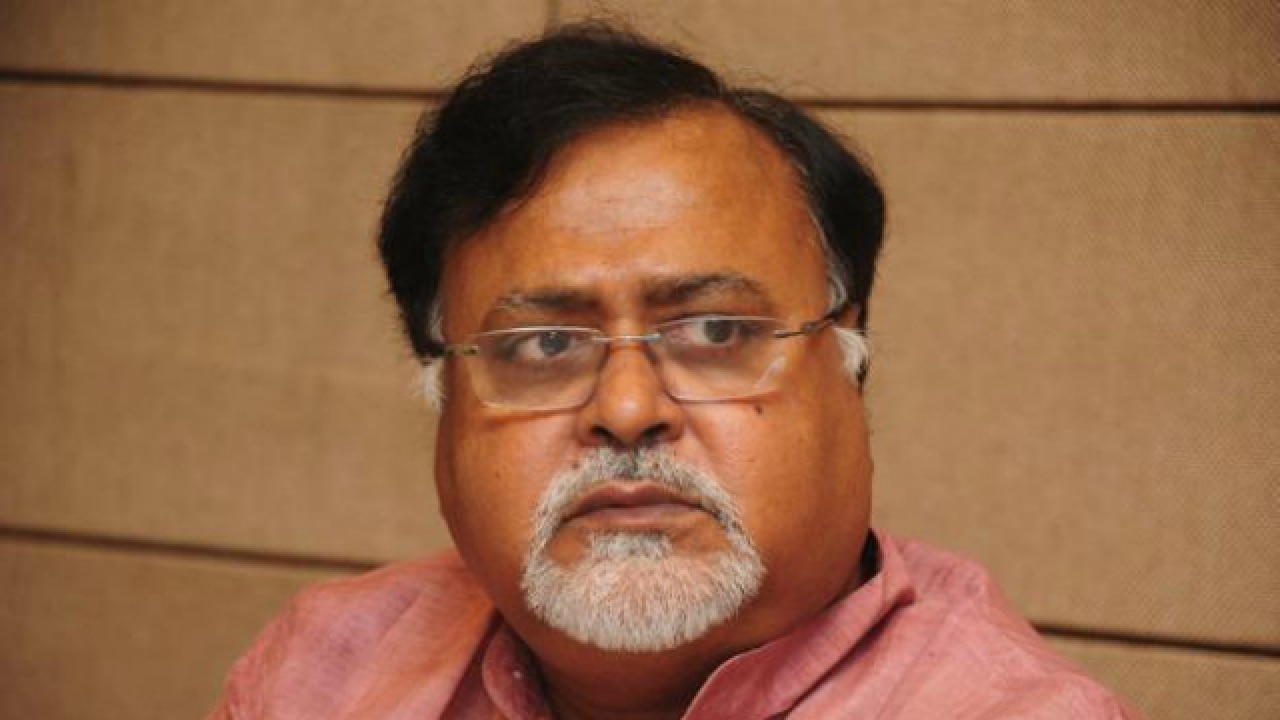The burning of Ravana’s effigy is just one of several activities that Dussehra celebrations include, proclaiming the victory of good over evil. After celebrating Durga’s triumph over the demon king Mahishasura, there will be extensive preparations for the immersion of the clay representations of her. Traditionally, millions of Indians both inside and outside of India participate in these celebrations. People from all different cultures visit the exquisitely adorned puja pandals, and the audiences for the Ram Leela presentations are as diverse as well. It has always been like this.
But will that continue? Will there soon be “Hindus only” signboards outside the pandals, similar to the ones in British India that prohibited Indians from entering numerous public spaces? Is the concept of “Hindus Only” signboards really absurd if a pandal in Kolkata can truly depict the demon king slain by the Goddess in the shape of Gandhi-ji? The perpetrator of the outrage, Chandrachud Goswami, a spokesperson for the Vishwa Hindu Parishad, was neither defensive nor timid. Gandhi “does not deserve respect,” he declared, “and we want to make it very clear that we want a Gandhi-mukt Bharata Varsh.”
In this world and in its own society, India must consider whether evil is triumphing over good in today’s world and in its own society. Maybe not. The majority of the time throughout history, the people of India—the working poor, the labourers, and the kisans—have decided to stand up for what is right and resist forces that want to enslave us, drive us apart, and uphold injustice. Today’s conflict, however, is not a typical one. New justifications for why the question is pertinent are presented every day. Consider the most current changes to the “garba” festivities.
The beating of Muslim males by private soldiers of the Hindutva brigade at or even near “garba pandals” is comparable to setting the Constitution ablaze. The attacks represent a very extreme kind of crude religious profiling. It is disgusting to portray a whole group of people as potential troublemakers, sexual harassers, or “love jihadists.” Police have acknowledged that no reports of harassment by any women who attended the garba gatherings have been made in relation to any of these incidents. Hindu women are further insulted by the claim that Muslim males “lure” women because if they are so easily “lured,” they must be brainless.
Centers in Gujarat and Madhya Pradesh, two states governed by the BJP, have seen such attacks. The victims have been detained by the police in place of the assailants, who were often headed by the Bajrang Dal and occasionally the Vishwa Hindu Parishad. The police have employed Section 151, an open-ended provision, which provides them with the power to make arrests without any evidence or proof of a crime committed but to “prevent the conduct of cognizable offences,” because there is no evidence of any wrongdoing against people who have been detained. “(1) A police officer may arrest, without instructions from a magistrate and without a warrant, the person so planning, if it seems to such officer that the commission of the offence cannot be otherwise accomplished” the law states. However, not a single one of them, not even those clearly identifiable in the videos shown on national television, has been booked by the police. “The Hindutva brigade have made known their intention to use the present religious festivities to target Muslims. They are the people’s own design,” the statement reads. It is well known that certain police officers are from different ethnic groups. However, the public backing provided by the governments of Gujarat and Madhya Pradesh to the Hindutva gangs explains the evident prejudice in their behaviour in these incidents.
Tannu Sharma, the head of the Bajrang Dal in Indore, said that Muslims would not be permitted in garba pandals. Pehle rokenge, pair tokenge, phir thokenge, he reportedly said (we will stop them, then threaten them, then beat them). The Malegaon bombing suspect and MP Pragya Thakur said, “Muslims should not be allowed inside garba pandals,” and she added, “Muslim-owned establishments near the pandals should be shut down.” Usha Thakur, the minister of culture, echoed the Bajrang Dal when she said that “Garba pandals are becoming the channel for love jihad.” The State’s Home Minister Narottam Mishra then said that “identification cards will be required to enter pandals.” Orders requiring ID cards were issued by district administrations in Ujjain, Bhopal, Indore, Narmadapuram, and Khandwa in response to his comments. Therefore, what began with the Bajrang Dal came to an official conclusion with government endorsement. Do not deceive yourself into thinking that they are “fringe elements.”
Sexual attacks against women are a serious offence in Madhya Pradesh. The police must make sure that goons are apprehended and that the ladies are protected if they appear at such public gatherings with potentially large numbers of young women. Identity cards simply provide the name and address of the individual in question; they do not display criminal history data. Identity cards were mandated not to safeguard women but rather to degrade people from minority groups. There could be Muslims going by at any time because many of the pandals are located on busy streets. According to reports, they also experienced physical assaults and harassment. Fourteen Muslim community members were detained in Indore alone.
The Hindutva group in Gujarat sent instructions to garba pandal organisers while posing as the administration. Bajrang Dal and VHP spokesperson Hitendrasinh Rajput justified the attack by saying, “Bajrang Dal has instructed all organisers to ensure that no security person is hired from the Muslim community as they have malafide intentions of luring Hindu girls. If it is done, then such clashes will happen.” According to Bajrang Dal’s announcement, its soldiers would be “checking” the pandals to make sure no Muslims were there. It hardly requires a political scientist’s analysis to point out that this is a clear example of official backing for completely unlawful conduct if the Hindutva brigade can act with such impunity.
Members of all groups have been participating in “garba” celebrations, which are similar to those connected with other religious holidays, for decades. However, the practise of religious celebrations serving as platforms to exacerbate divisions between communities has grown since the BJP came to power in India in 2014. Muslim musicians have long been linked with the festivals of Gujarat, the region where the garba custom first appeared. In Ahmedabad, there have been instances when Muslims have been denied access to garba festivities in 2015. At the time, “beef eaters” were to be barred from the pandals, not “love jihad”. In an interview (Economic Times, Oct. 10, 2015), “The Muslim ‘Mir’ or ‘Langa’ community was traditionally associated with music in Gujarat and their members participated and played music in Hindu temples and festivals. In recent times, Mir singers, male and female, have become very popular and are invited to sing during Navaratri in various towns and cities,” said Achyut Yagnik, a well-known author and analyst of Gujarati society.
Since 2015, the issue has gotten worse as assaults have evolved. Huge garba parties featuring Bollywood stars are organised by professionals, many of whom are Muslim event planners, as the celebrations become more commercialised. They aren’t permitted to plan such activities. Security measures are necessary for the event. Some of the guards are Muslims who work hard for their money. This is also halted. This is a direct attack on livelihood: Muslim event organisers are not allowed to offer professional services; Muslim shop owners are not allowed to open their businesses, and Muslim workers are not allowed to go to work.
We witnessed a well-coordinated strategy in action a few months earlier, during Ram Navami, when a violent procession of slogan-shouting members headed by the same organizations—the Bajrang Dal and the VHP—provoked conflicts outside mosques during a time when the Muslim population was observing Ramzan. Many of the hundreds of Muslims who were detained are still behind bars. Bulldozers were employed to completely destroy Muslim-owned properties, while the provocateurs got away with it because of official support. Today, it is hoped that navratri or puja festivals will serve the same purpose of demonising a group of people, splintering society, and eradicating pluralist traditions.








